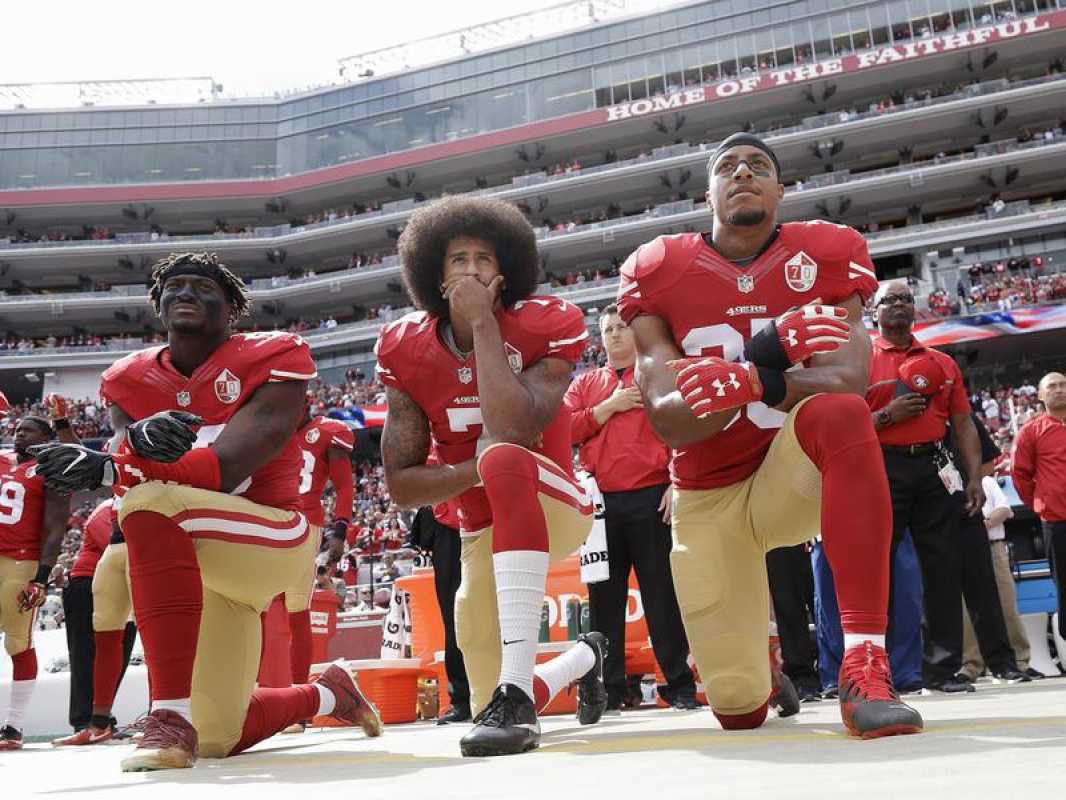Features
Athlete Activism: Using Sports As A Platform For Social Change

Sports have a unique way of capturing the attention of millions of people around the world. Athletes are not just seen as entertainers but also as influential figures who can inspire change. In recent years, we have witnessed an increase in athlete activism, where sports figures use their platforms to raise awareness about social issues and advocate for change. This article explores the power of athlete activism and its impact on society.
The Rise of Athlete Activism
Athlete activism is not a new phenomenon, but in recent years, it has gained significant momentum. Athletes are taking a stand on various social issues, including racial inequality, gender discrimination, police brutality, and environmental sustainability. From Muhammad Ali’s fight against racial injustice in the 1960s to Colin Kaepernick’s kneeling protest against police brutality, athletes have been using their platforms to amplify their voices and bring attention to important causes.
Why Athletes Choose Activism
Athletes often choose to engage in activism because they have experienced or witnessed injustice firsthand. They understand the power of their position and recognize the responsibility they have to speak up for those who may not have the same platform. By using their voice, athletes aim to create a positive impact on society and inspire change.
Athletes also realize that they have a unique ability to reach a wide audience. Through traditional media coverage, social media platforms, and sponsorships, athletes can engage with millions of fans and followers. This visibility allows them to raise awareness about social issues, challenge societal norms, and advocate for marginalized communities. Athlete activism helps spark conversations and encourage dialogue on important topics.
The Impact of Athlete Activism
Athlete activism has the power to influence not only sports culture but also society at large. When a prominent athlete takes a stand on a social issue, it often sparks a ripple effect. Other athletes, fans, and even sports organizations become more inclined to support the cause or engage in similar acts of activism.
One significant impact of athlete activism is the shift in public opinion. By bringing attention to social issues, athletes force people to confront uncomfortable truths and challenge deeply ingrained biases. This can lead to societal introspection and, ultimately, change. For example, Kaepernick’s protest against police brutality sparked a national dialogue in the United States and brought the issue to the forefront of public consciousness.
Athlete activism can also lead to concrete changes within sports organizations. When athletes unite behind a cause, they can pressure governing bodies to address issues such as discrimination, inequality, or unfair labor practices. By utilizing their collective power, athletes have the ability to drive policy changes and create more inclusive and equitable sporting environments.
Criticism and Pushback
Athlete activism is not without its critics. Some argue that athletes should stick to sports and not get involved in political or social matters. However, it is important to remember that athletes are not just athletes; they are also citizens with opinions and lived experiences. Just like any individual, they have the right to express themselves and engage in activism.
Furthermore, athlete activism is not limited to personal opinions; it is often rooted in lived realities. Athletes who have experienced discrimination or injustice are speaking out to create awareness and bring about change. Their activism is a reflection of the challenges they face as individuals and as members of marginalized communities.
The Importance of Athlete Activism
Athlete activism plays a crucial role in shaping societal attitudes and bringing about social change. By using their platforms, athletes can reach and inspire millions of people. Their strong and influential voices can challenge the status quo, break down barriers, and drive conversations on vital issues. Athlete activism reminds us that sports can be more than just a game; it can be a platform for justice, equality, and progress.
In conclusion, athlete activism is a powerful force for social change. Athletes have the ability to utilize their platforms to raise awareness, challenge norms, and inspire action. Through their activism, they can drive important conversations, shift public opinions, and create tangible changes within sports organizations and society as a whole. Athlete activism serves as a reminder that sports can transcend boundaries and be a catalyst for a better and more inclusive world.










